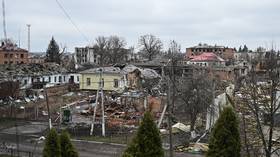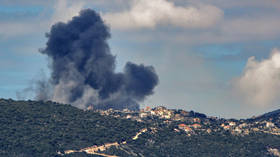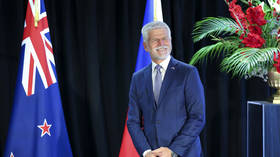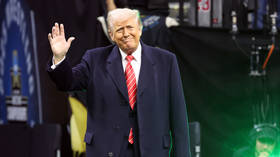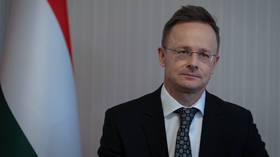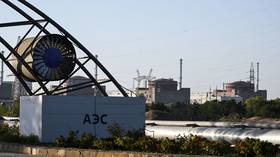Kyrgyz election leads to disintegration
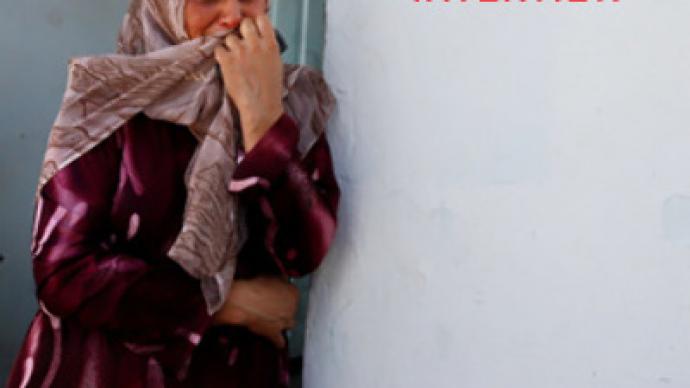
A Central Asia expert, Daniil Kislov is sure that the elections in Kyrgyzstan are leading the republic to the Middle Ages and tribal wars rather than democracy.
Kyrgyzstan will elect its parliament on Sunday, October 10. During the 20 years since independence, the republic has seen numerous dramatic events, becoming impoverished and losing practically all the resources for its economic development. Currently it is being torn apart by clan infighting disguised as political struggles, as well as a hatred for the Uzbek minority that is being whipped up by the drug mafia.RT: What is the reason behind Kyrgyzstan’s perpetual instability? It has no oil, no particular resources, but in the past 20 years they have had two major massacres and two “color revolutions.”Daniil Kislov- Political Scientist- Editor-in-Chief and the founder of one of the most quoted news agencies on Central Asia, Fergana.ru, a Moscow-based website that reports on political, social, and cultural issues of Uzbekistan, Kyrgyzstan, Kazakhstan, Turkmenistan and Tajikistan- Director of the Central Asian Information Center- Hails from a Russian family that moved to Central Asia following its accession to the Russian Empire; four generations of it lived in Ferghana, an old Russian military outpost- Left Ferghana in the late 1990s after the departure of the bulk of the cultural intelligentsia- Said of himself: "I sought to drag all things Asian to the Russian soil. Some say I am successful – sometimes"Daniil Kislov: The problems with the region in general and with Kyrgyzstan in particular are a result of what has been going on there for the past 20 years since the collapse of the Soviet Union – namely, economic de-modernization, social degradation and the growing gap between the political facade and the real needs of the people. These tendencies are common to the entire region of Central Asia, except, to a degree, Kazakhstan and Turkmenistan , which have oil and natural gas. Of course, in Kyrgyzstan the decline is particularly striking. It was caused by the collapse of the Soviet Union, Kyrgyz rulers and all players in the region: the United States, China and Russia.In the Soviet Union, Kyrgyzstan was always a subsidized region. After 1991, its industry went belly-up. Nobody subsidizes it any longer. Kyrgyzstan’s foreign debt is growing and there are no prospects of economic development in sight. The country is caught up in what may seem as political competition but in reality it is tribal strife, massacres and riots instigated by bandits and drug barons.Daniil Kislov (RIA Novosti / Alexander Vilf)RT: What role does the United States play in Kyrgyzstan’s destabilization? It was in Kyrgyzstan that the US set up a military base in 2001.DK: The United States likes to advertise its democratic values and encourage others to follow them. The two “color revolutions” demonstrated that the Americans need nothing from the region except that they want to be able to have a military base there. In a way, it’s their way of demonstrating their strength to the entire region, including China and Russia. But the US has made it clear that it won’t help Kyrgyzstan get out of the hole. It won’t go out of its way to repay Kyrgyzstan for the opportunity to have a base on its territory. The United States prefers to give a handout to Kyrgyz officials instead of implementing a systematic aid program. This money won’t reach the people. Not a single congressman cares about the situation in Kyrgyzstan.RT: What is your view on Russia’s position regarding this situation?DK:Russia, just like the other major players in the region, does not worry too much about the moral, economic and political meltdown in Kyrgyzstan. The fault of the big players is that they simply wait. They wait to see if there is a war and what further degradation it may result in. There is a party called USSR in Kyrgyzstan; its objective is to reunite with Russia. But they have merely 0.3 per cent of the vote. So nobody seriously thinks that Kyrgyzstan may become part of Russia, as somebody proposed recently. Of course, Russia, too, does not take such ideas seriously. But at the same time it is clear that if this situation of collapse persists, half or even the majority of the Kyrgyz people will simply move to Russia, as our countries allow vise-free travel. We already have a million Kyrgyz people living in Russia, and this is one-fifth of Kyrgyzstan’s population.RT: What role does China play?DK: China is biding its time. It’s not doing anything specific. It doesn’t send any diplomatic messages. China regards all neighboring territories as markets. Over the past 20 years, China succeeded inWhat the US is doing in Kyrgyzstan- maintaining the Manas base to secure manpower airlifts to Afghanistan- demonstrating to the region that, aside from bankrolling a certain part of the local elite, it is involved neither in the economy nor in politics- looking with indifference upon clan-sponsored coups, ethnic carnage and pogroms, the strengthening of the drug mafia, and the country’s general degradation, which is making it slip back to the Middle Agesdeveloping its border provinces, as they gained access to Central Asia and 50 million new consumers to buy Chinese goods. China needs logistics to move its goods, so China doesn’t want to see a war in the region. China is merely sitting aloof, as a 5,000-year-old wise man, and contemplates how events unfold. China realizes that trade will be more difficult now but it won’t move a finger for Kyrgyzstan.RT: How much do drug lords intervene in politics?DK: Drug lords play a very important role. I believe that the Osh riots, partly the first “color revolution” and much of the second “color revolution” were financed and orchestrated by drug lords. Southern Kyrgyzstan is a base from which drugs go to Kazakhstan, Russia and Europe. We find evidence when rulers leave: for example, after Bakiyev left, it came out that his security service chief was a drug baron. When today’s rulers leave, we will find out who among them was linked to drug trafficking. Drug lords play an immense role in Kyrgyzstan.RT: Why was there no investigation into the Osh massacre? Why do international human rights organizations keep mum about it?DK: There is no investigation and no discussion because some members of the interim government were involved in it. This has to be proved. We know that there were two groups involved in the Osh massacre: Bakiyev’s supporters and those who replaced them in power. They all wanted to use the ethnic factor. That’s why the massacre and riots developed such proportions. But these people can’t be charged right now because today they have authority and run for parliament.As for human rights activists, there are only two ladies left in Kyrgyzstan—Tolekan Ismailova andWhat Russia means for Kyrgyzstan- it can be asked for help without fearing that Russia will send in its forces- over one million Kyrgyz inhabitants, or one in every five, now have jobs in Russia- if Kyrgyzstan suffers a collapse, Russia will be able to accept the majority of its population, but will be unwilling to let the republic accede to itAziza Abdurasulova. A Kyrgyz woman and an Uzbek woman. The Uzbek woman is still there but the Kyrgyz woman had to leave because she was persecuted for defending the Uzbek people.RT: Do you expect the election to add more stability?DK:Some say that the election will help get the people and the nation out of the hole. Personally, I think this is just hypocrisy. In reality, the election is a road to nowhere. This is even worse than holding a referendum on constitutional amendments days after thousands of people were slaughtered in southern Kyrgyzstan.RT: What can you say about public sentiment in Kyrgyzstan today?DK: As regards the one million Uzbek people in Kyrgyzstan, they are pretty much in despair. They no longer believe they will be allowed to live in their houses on their land. As for the most impoverished people, they don’t vote for parties or clans; they vote with their feet, by moving to Russia, Kazakhstan or South Korea – any country where they can find a job. Common people view this parliamentary election as another episode in a show that has nothing to do with reality. Nobody expects anything from the election. Everybody realizes how corrupt the election is. People see how votes are bought.Why Kyrgyzstan is on the brink of disaster- following the disintegration of the USSR, it saw its industries, economy, agriculture and tourism collapse- tribal clans, criminal groups and a drug mafia came to power- the country has fallen into two parts, North and South, and the coming elections will promote further disintegration- none of its neighbors are interested in its internal stabilization- Uzbeks, which make up 15 per cent of its population, have been exposed to massacres; they are frightened and fleeing the countryInstead of political parties, they see tribal groups pushing their candidates. The election will further divide Kyrgyzstan into tribes and clans disguised as parties. So, what can you expect in such a situation? It’s merely an appearance of politics. The nation is actually disintegrating and turning into a number of small khanates.RT: So disintegration is what the future has in store for Kyrgyzstan?DK: Disintegration is not the future; it is happening today. The mayor of Osh, one of the most influential people in southern Kyrgyzstan, openly declares that he does not take orders from Bishkek. Southern territories are already isolated from the rest of Kyrgyzstan. People there have different laws. They have their own local authorities closely allied with bandits and drug lords. Northern districts, in the meantime, naively believe in the sham election. You can’t possibly imagine stronger alienation, except perhaps for a full-blown military conflict. And, in fact, such a conflict may happen. The parliamentary election, if anything, makes this danger all the more imminent. Now is a bad time for a parliamentary election, but nobody wants to acknowledge this.You can’t hold an election in a situation where people put their clan and their tribe above political institutions, where lowbrow nationalism means more than moral principles. You need to set up a tough authoritarian regime and stop this series of coups for a while. You need to give the people some time to come back to their senses, consider what has happened and get some rest from emotional outbursts. Right now people in Kyrgyzstan are angry. Everybody is angry at everybody. Everybody is looking for an enemy. Some turn on people of different ethnic origin as their enemies. As a result, those who are now called enemies all of a sudden become a minority and have to pack up and leave. How can you have an election in such a situation? How can you say it is democratic? It’s not democratic at all.Nadezhda Kevorkova, RT



